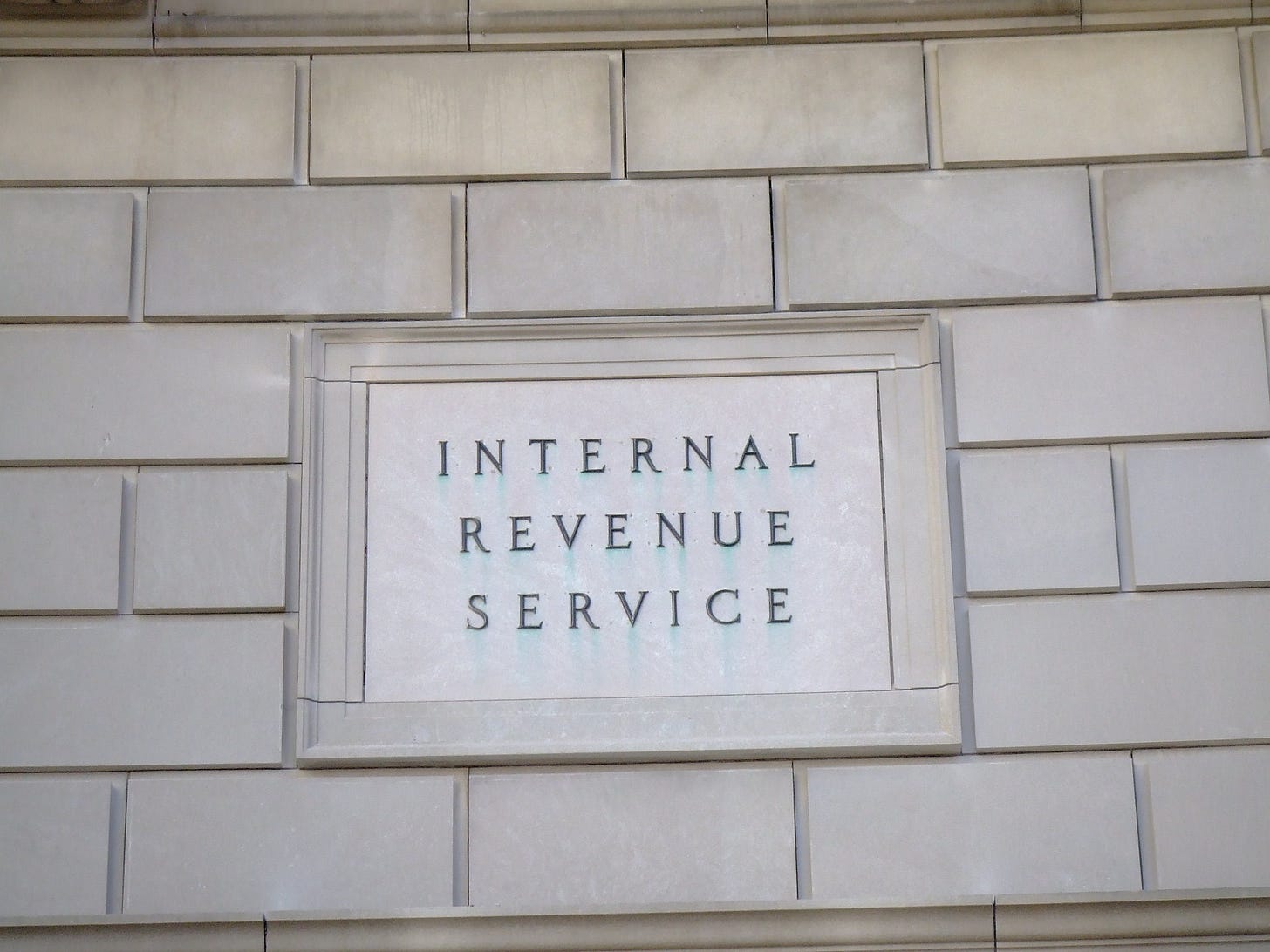Sympathy for the Tax Man During the Pandemic
Coronavirus shows the folly of the long effort to destroy the IRS.

A much-hyped part of the coronavirus response bill passed by Congress — the one with the very ugly corporate bailouts — is $1,200 for every adult in the country up to a certain income level. The IRS has been tasked with getting those checks out the door, on top of all of its usual duties.
Since the IRS is in a bad way, this is a big problem.
Already, per the Washington Post, “Taxpayers in need of answers from the IRS amid a rapidly changing job market are encountering dysfunctional government websites and unresponsive call centers that have become understaffed as federal workers stay home.” Americans who don’t have direct deposit information on file with the IRS may not see their checks until September — far too late for those most in need of the money.
This wasn’t inevitable. There’s been a long, concerted effort by lawmakers to render the IRS dysfunctional. Now, when we need it to respond to an unprecedented situation, it can’t, because it’s dysfunctional.
Almost exactly six years ago, I wrote an article called “Sympathy for the Tax Man,” which detailed how Congress has asked the IRS to do more and more while simultaneously slashing its budget. Nothing since then has changed. The agency keeps getting new responsibilities without enough capacity to handle them well, if at all.
Consider: The IRS has computer systems that date back to the 1960s. In 1992, it had more than 116,000 employees; that’s down to 73,000 today. Its budget has declined every year since 2010 except for one. That’s just the tip of the iceberg.
There are three reasons for these numbers: First, conservatives have spent decades declaring that taxes are theft, rather than the price we pay for a civilized society, and the Tea Party turned that message up to 11 when it came to Washington during the Obama years, making cutting the IRS budget a priority. It was an easy way to score political points off an agency few love.
Second, anti-tax advocates and the tax prep industry have intentionally worked to render the IRS impotent. The former thinks a miserable tax-paying experience will serve its political ends, while the latter literally profits off of taxes being complicated.
Finally, both political parties have bought into bogus nonsense about the IRS targeting specific filers, resulting in retaliatory budget reductions even after the allegations prove to be false.
Meanwhile, there’s no political reason for anyone to provide a counterbalance to those efforts, since going to bat for the IRS never won anyone a vote in an election. (Credit where it’s due: Elizabeth Warren tried to change that.)
Even before coronavirus, it was clear the IRS was too overwhelmed to do its job. In fiscal year 2018, some 60 percent of attempts to receive live assistance from the agency over the phone failed due to understaffing. Audit rates have plummeted as the numbers of auditors has dropped, and the agency now spends a disproportionate amount of time auditing low-income taxpayers because, by the IRS’ own admission, it’s cheaper and easier to go after them than rich people and corporations. So real tax scofflaws get off scot-free.
Yet now, in a moment when the economy is melting down, the IRS is being counted on to step in and provide immediate relief. The stimulus bill dedicated just $250 million to the IRS for all this extra work, which doesn’t even get its budget back to where it was way back in 2016.
Managing a large part of the coronavirus response would be a difficult task even at a well-resourced agency; at one that’s a perennial punching bag, it’s basically impossible.
But we can’t forget that this wasn’t some inexorable outcome. It was a choice policymakers made that is coming back to haunt us now, hurting those who can least afford it.
Some personal news: I have a new job! I’m joining the American Economic Liberties Project, where I’ll be director of state and local policy — so full-time, I’ll be trying to solve the problems this newsletter covers. It’s therefore even more useful when you flag stuff for me. Let me know what’s happening in your community and maybe we can swing into action and help you fix it.
Thanks for reading this edition of Boondoggle. If you don’t subscribe already, just click the green button below.
If you liked this post, take a moment and click the little heart under the headline or below. It helps.
If you’re already a subscriber, please forward this around to friends, family, neighbors, or whoever you think might like it, and tell them to sign up too.
Finally, if you’d like to pick up a copy of my book, The Billionaire Boondoggle, go here. Thanks again!
— Pat Garofalo


